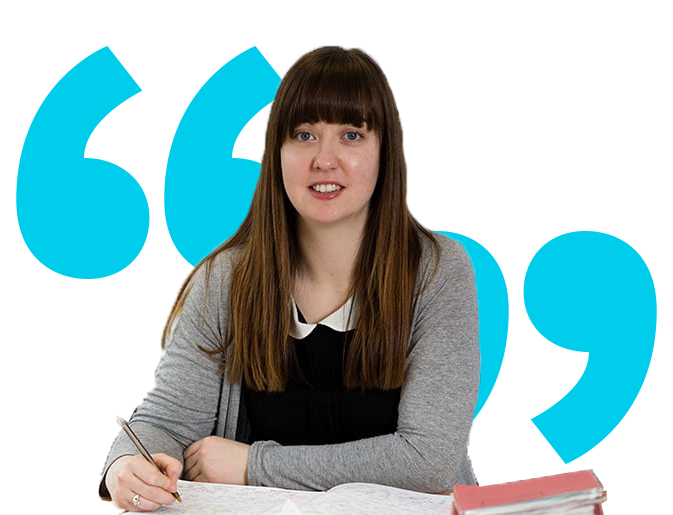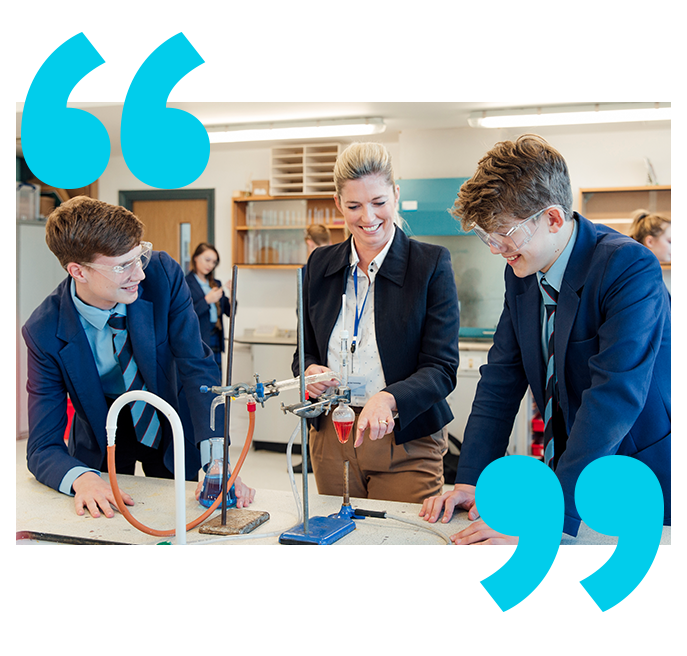"I had considered a career in teaching for quite some time, from my early years at secondary school. As I grew older, I knew I wanted to be in a career where I could inspire people to achieve their potential."Josie Burgess – Gàidhlig teacher at Sgoil Ghàidhlig Ghlaschu/Glasgow Gaelic School

Routes into teaching
There is no end to the number paths that lead to a happy and successful teaching career. You might be surprised at how your own work and training history makes you the perfect candidate. Discover more about the various routes open to you should you want to make the move into the profession.
Information, support and advice to help you become a teacher
There’s plenty of support and advice available here on the site to help you begin your own journey into teaching. Read on to find out what you need to do to become a teacher.
You can teach in Scotland once you have:
- Completed a four-year undergraduate course in education
or - Completed an undergraduate course, and then a one-year Post Graduate Diploma in Education (PGDE)
or - Qualified outside of Scotland, with equivalent qualifications
What kind of teacher would you be?
For a quick way to find out, take our quiz.
Become a primary school teacher
Primary schooling typically starts at 4 or 5 until 12 years of age. Primary school teachers cover lessons in all areas of Curriculum for Excellence including: expressive arts, health and wellbeing, languages, mathematics, religious and moral education, sciences, social studies and technologies.
There are a number of undergraduate, postgraduate and alternative routes into primary school teaching.
Find out how to become a primary school teacher, and what’s involved.
Become a secondary school teacher
Secondary school teachers teach specialist subjects to young people typically aged between 12 and 18 years old. As a secondary teacher you will be able to inspire pupils in your subject as well as support their health and wellbeing in their formative years. The routes into secondary teaching are different to those into primary.
Find out how to become a secondary school teacher, and what’s involved.
Probationers
The probationary year in Scotland is known as the Teacher Induction Scheme (TIS). This is a guaranteed, one-year probationary teaching post with a Scottish local authority school. A flexible route is also available. You can find out more at The General Teaching Council for Scotland website.
Skills and qualities for teaching
Age groups – how the Scottish education system works
Children in Scotland complete seven years of primary school, starting in P1 and going up to P7. After this, they’ll complete six years of secondary school from S1 to S6. Secondary schools in Scotland are also known as high schools or academies.
What is the Curriculum for Excellence?
Scotland’s world-leading national curriculum, Curriculum for Excellence gives teachers flexibility to deliver learning that really engages pupils. This major educational reform aims to provide a wide, flexible range of courses and subjects. The Scottish government only sets guidelines about the school curriculum – which means that schools don’t have to stick to set learning paths, and can decide what to teach their pupils.
There are three core subjects that sit at the heart of the curriculum that schools must teach, but can be taught across a range of subjects and themes:
- Health and Wellbeing
- Literacy
- and Numeracy
Project-based learning brings together the skills and knowledge from across the curriculum, giving pupils an engaging and more connected way to learning. It’s an opportunity for their lessons to be more personalised, perhaps centred around what really interests them, and even introducing topics that are relevant to their local area and community.
For further information on becoming a teacher, check out the General Teaching Council’s helpful guide – So you want to teach in Scotland? (PDF)

